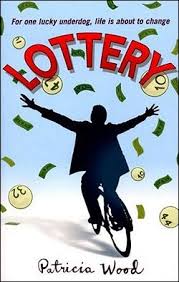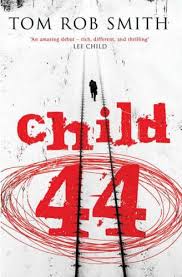
Author Ellen Potter, creator of the delightful Olivia Kidney series, brings us yet another memorable hero in her new book, SLOB. In the short time since its release earlier this month, the book has already received rave reviews, as well as a Junior Library Guild Award.
'I'm sure you've noticed that a lot of books start out with some kid's first day in a new school. The thing is, when you are fatter and smarter than the national average, practically every day is like the first day at a new school'. With these words, we are introduced to Owen Birnbaum, an overweight 12 year old with an IQ just one point short of genius, for whom school is a daily nightmare of taunting classmates and tyrannical gym teachers. Worse, someone has begun stealing his precious daily ration of three Oreo cookies- the one bright spot in his school day - and the most likely suspect just happens to be the scary new boy who may carry a knife in his socks. Yet, despite being a self confessed coward, Owen sets out to trap the thief. Meanwhile, he scavenges demolition sites for machine parts and scrap to build a mysterious invention called Nemesis.
Clearly there is more to Owen than he lets on."Everyone thinks they know the fat kid. We're so obvious', says Owen, just as we settle back for what seems like yet another light hearted story about growing up and whacky inventions. And the truth, when it arrives, well into the middle of this book, is as disturbing as it is unexpected.
SLOB is at one level a story about learning to deal with being different, and standing up for friends and for who you are. At a deeper level it is about a child's struggle to come to terms with an extremely traumatic experience and get past it. Along the way, Owen discovers his own courage , resilience and capacity to forgive. His one conviction has always been that he is the smartest person around – indeed, he is faintly arrogant about this in his dismissal of the intelligence of the people around him . This also leaves him feeling isolated, as he struggles with issues he thinks his friends and family can neither comprehend nor solve the way he can. Yet, by the end, he realizes he hasn't been very smart at all, especially in his assessment of his little sister ("very so-so in the cerebral cortex region") and the new boy, Mason Ragg ("evil comic book character, bogeyman").
The lessons this well crafted book offers are subtle yet powerful, and conveyed with gentle humour. Owen’s voice - he narrates this story - is utterly convincing , and his self deprecating wit and sly asides about teachers and family kept me hooked to this story from page one. (He reminded me a great deal of another Owen that I hold dear, since I first met him in a school library). SLOB has several surprises in store for the reader, none of which I ever saw coming. The book has some other delightful and complex child characters that gradually reveal their strengths through the course of the story– Owen’s sister Caitlin who insists on being considered a boy; Arthur and Mason, even sports jock Andre who, behind his bluster and back slapping, does seem to care about Owen. In contrast, the largely peripheral adult characters are more stereotypical – the caring mom, the supportive neighbor, the cruel teacher – yet very believable.
Watch out for one final surprise at the very end – a small yet wonderfully life affirming gesture that had me awestruck, humbled and teary eyed all at once. This is a book I shall keep returning to for a long time.
Thanks to Ellen Potter for sending Bookblah a copy of the book to review.
'I'm sure you've noticed that a lot of books start out with some kid's first day in a new school. The thing is, when you are fatter and smarter than the national average, practically every day is like the first day at a new school'. With these words, we are introduced to Owen Birnbaum, an overweight 12 year old with an IQ just one point short of genius, for whom school is a daily nightmare of taunting classmates and tyrannical gym teachers. Worse, someone has begun stealing his precious daily ration of three Oreo cookies- the one bright spot in his school day - and the most likely suspect just happens to be the scary new boy who may carry a knife in his socks. Yet, despite being a self confessed coward, Owen sets out to trap the thief. Meanwhile, he scavenges demolition sites for machine parts and scrap to build a mysterious invention called Nemesis.
Clearly there is more to Owen than he lets on."Everyone thinks they know the fat kid. We're so obvious', says Owen, just as we settle back for what seems like yet another light hearted story about growing up and whacky inventions. And the truth, when it arrives, well into the middle of this book, is as disturbing as it is unexpected.
SLOB is at one level a story about learning to deal with being different, and standing up for friends and for who you are. At a deeper level it is about a child's struggle to come to terms with an extremely traumatic experience and get past it. Along the way, Owen discovers his own courage , resilience and capacity to forgive. His one conviction has always been that he is the smartest person around – indeed, he is faintly arrogant about this in his dismissal of the intelligence of the people around him . This also leaves him feeling isolated, as he struggles with issues he thinks his friends and family can neither comprehend nor solve the way he can. Yet, by the end, he realizes he hasn't been very smart at all, especially in his assessment of his little sister ("very so-so in the cerebral cortex region") and the new boy, Mason Ragg ("evil comic book character, bogeyman").
The lessons this well crafted book offers are subtle yet powerful, and conveyed with gentle humour. Owen’s voice - he narrates this story - is utterly convincing , and his self deprecating wit and sly asides about teachers and family kept me hooked to this story from page one. (He reminded me a great deal of another Owen that I hold dear, since I first met him in a school library). SLOB has several surprises in store for the reader, none of which I ever saw coming. The book has some other delightful and complex child characters that gradually reveal their strengths through the course of the story– Owen’s sister Caitlin who insists on being considered a boy; Arthur and Mason, even sports jock Andre who, behind his bluster and back slapping, does seem to care about Owen. In contrast, the largely peripheral adult characters are more stereotypical – the caring mom, the supportive neighbor, the cruel teacher – yet very believable.
Watch out for one final surprise at the very end – a small yet wonderfully life affirming gesture that had me awestruck, humbled and teary eyed all at once. This is a book I shall keep returning to for a long time.
Thanks to Ellen Potter for sending Bookblah a copy of the book to review.









